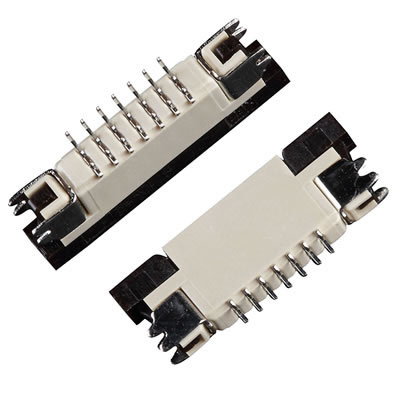Main Features of FPC Connectors
 2024-12-17 09:25:10
2024-12-17 09:25:10

FPC connectors are high-performance electronic connectors specifically designed for flexible printed circuit boards (FPCs), offering the following key features:
1.Miniaturization and High Density
With an ultra-thin design and narrow-pitch structure, FPC connectors support high pin-density connections, enabling efficient signal and power transmission in limited spaces. They are ideal for compact and lightweight devices.
2.Exceptional Signal Transmission Performance
Featuring low contact resistance and high anti-interference capabilities, these connectors ensure stable high-speed and high-frequency data transmission, meeting the demanding requirements of 5G communication, high-definition displays, and high-speed storage.
3.Diverse Installation Options
Available in various locking mechanisms such as flip-type, slide-lock, and latch-style designs, FPC connectors offer reliable and easy installation, adapting to different device design needs while simplifying assembly and maintenance processes.
4.Flexibility for Complex Layouts
Specifically designed for FPCs, these connectors can easily adapt to bending, folding, and complex spatial layouts, fulfilling the needs of intricate product designs in smart devices and industrial controls.
5.Durability and Environmental Adaptability
Constructed with high-strength, high-temperature-resistant, and corrosion-resistant materials, FPC connectors perform reliably in extreme conditions, including high vibration, high humidity, and elevated temperatures. They also support frequent plug-and-unplug operations for long-term use.
6.High Integration and Compatibility
Supporting various pin configurations and different FPC thicknesses, these connectors are compatible with a wide range of applications, from consumer electronics to industrial equipment.
FPC connectors, with their miniaturized design, high-performance transmission, flexible layout adaptability, and robust durability, have become essential components for modern electronic device connectivity. They are widely used in smart devices, automotive electronics, medical instruments, and industrial automation, enabling efficient and stable product connections.


